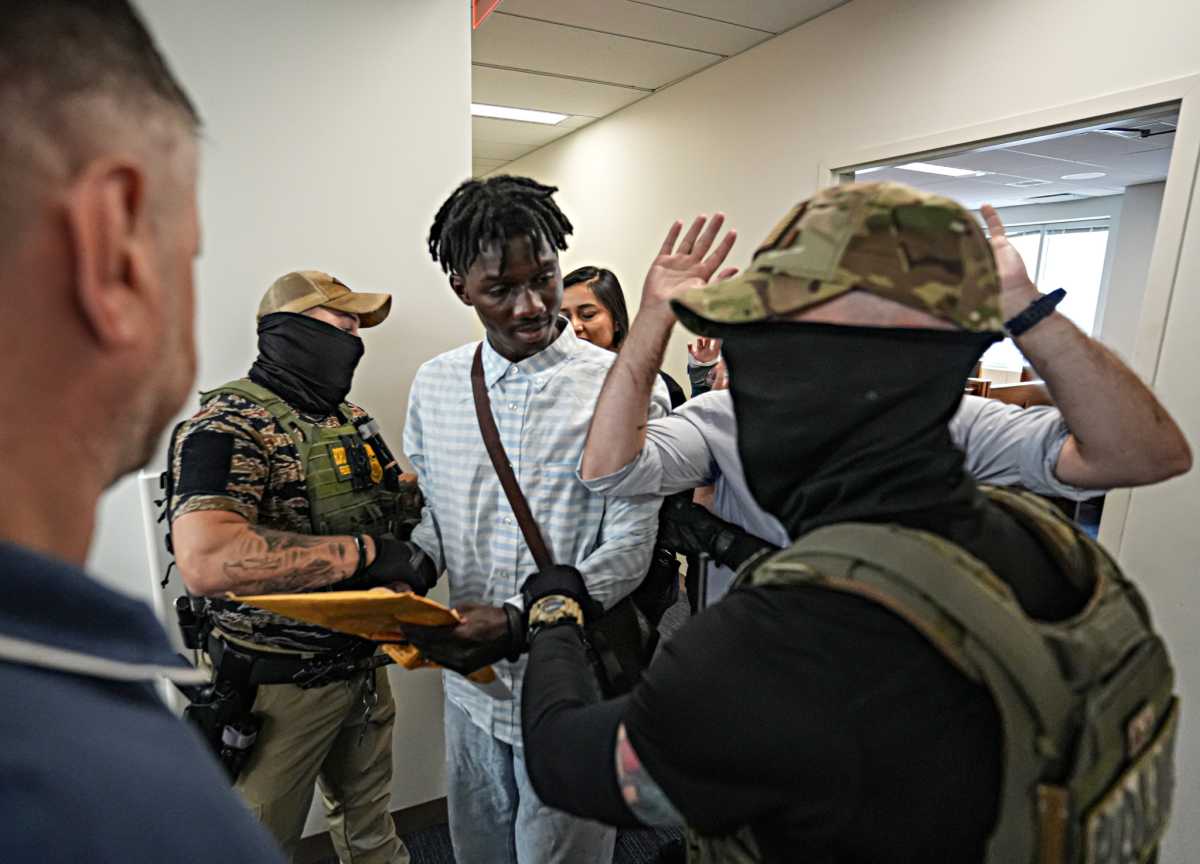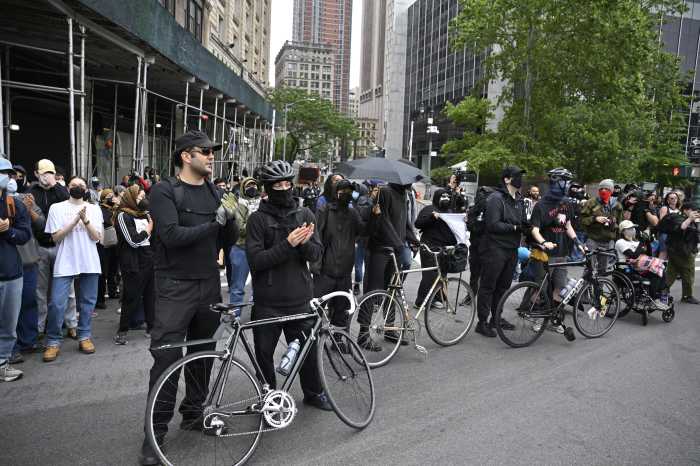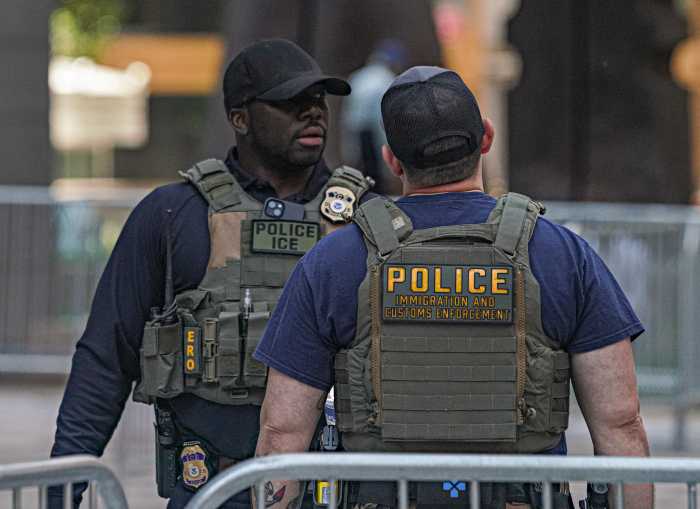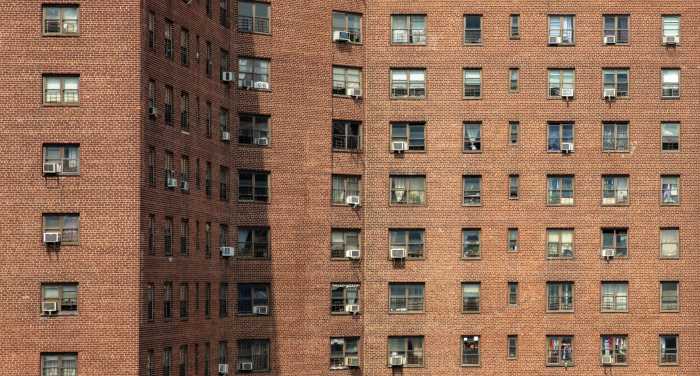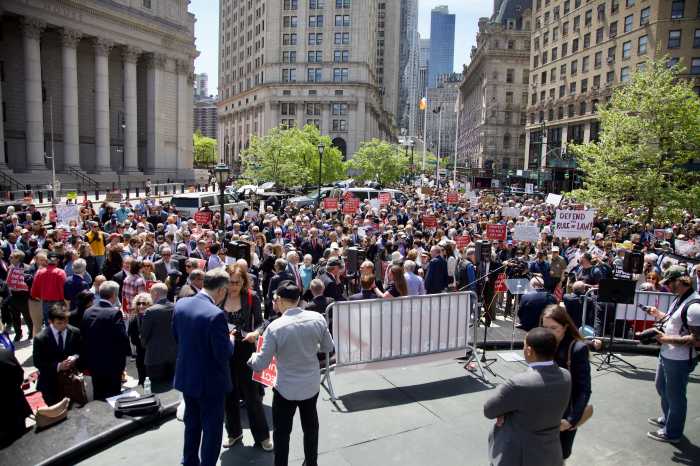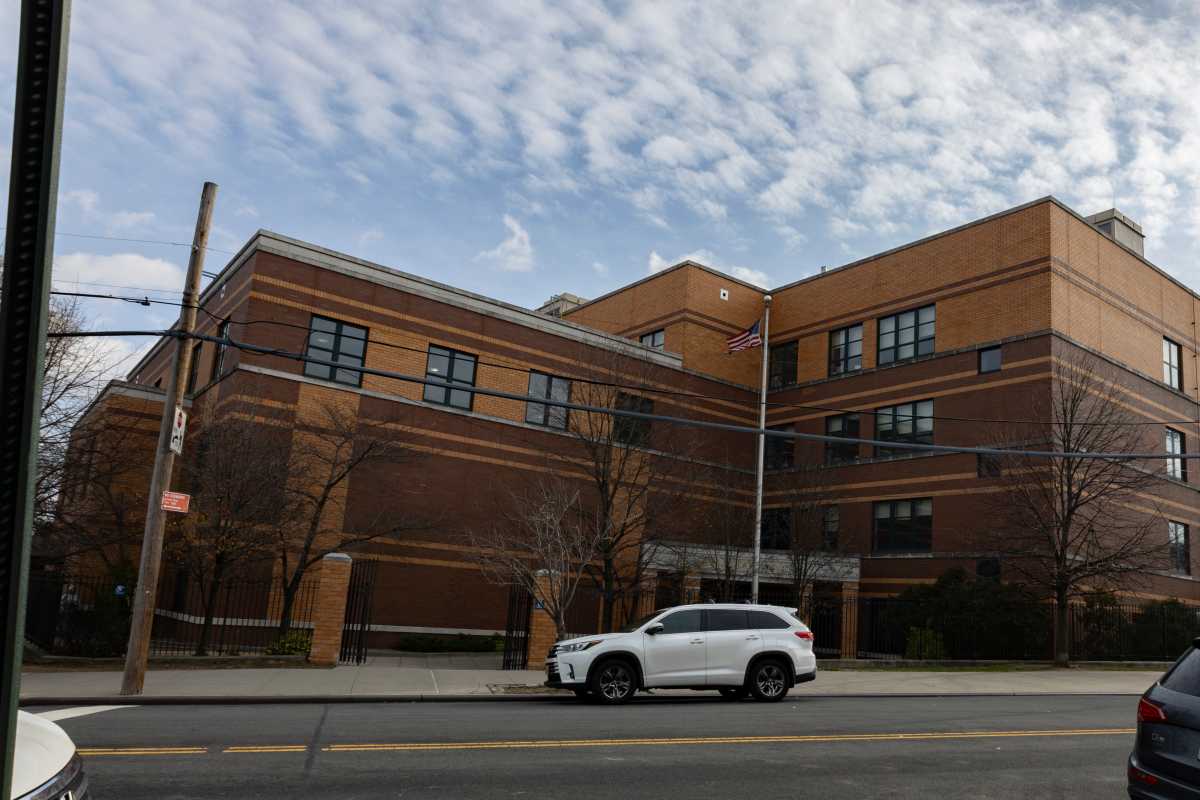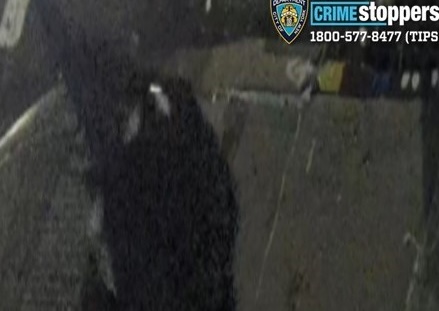US Rep. Nydia M. Velázquez (D-Brooklyn/Manhattan) rallied with advocates outside the ICE office and immigration court in Lower Manhattan on Saturday pushing for passage of federal legislation to prevent ICE agents from wearing masks during arrests.
Velázquez was joined by US Rep. Jerrold Nadler (D-Manhattan) and various organizations outside the Jacob K. Javits Federal Building, at 26 Federal Plaza, and residents with signs saying “Dissent is Patriotic” and “Unmask ICE now.”
Legislation known as “The No Mask for ICE Act” would prohibit Immigration and Customs Enforcement (ICE) agents from wearing face coverings during arrests and require them to clearly display their name and agency affiliation. It is similar to another bill that New York lawmakers have proposed, the “No Secret Police Act,” which US Reps. Dan Goldman (D-Brooklyn/Manhattan) and Adriano Espaillat introduced into Congress last week.
Masked ICE agents have become a common sight at Lower Manhattan immigration court and around the country — one that has left immigrant communities locally and nationally terrified, according to Velázquez.
“This is un-American. Immigrant communities are terrified,” Velázquez said. “Bystanders often think they are witnessing a kidnapping. People are left with no trust in the system.”
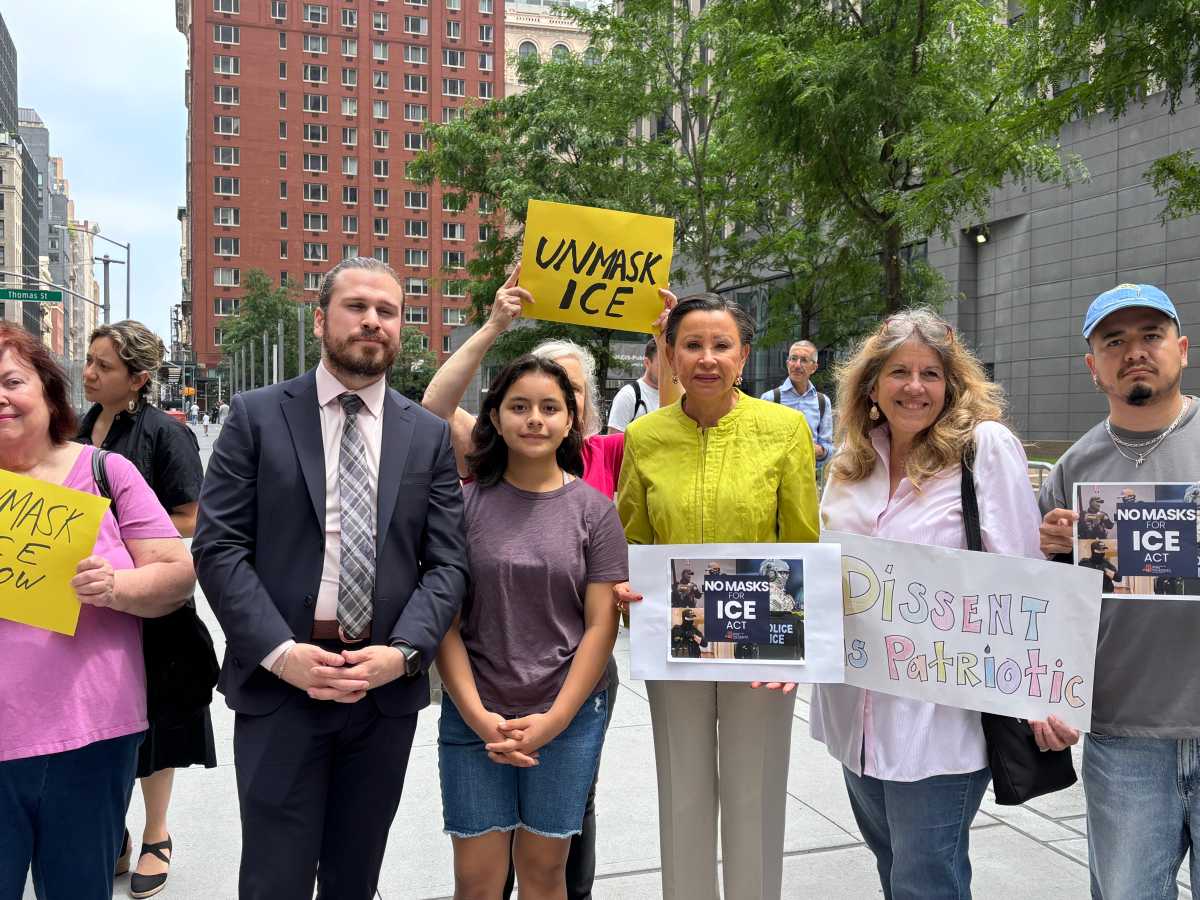
She said her bill had already won considerable support, that she had been invited to speak in Los Angeles, and that she expects a companion bill to be introduced in the U.S. Senate.
“We need to bring basic accountability back to immigration enforcement,” Velázquez said. “That starts with taking off the masks. That is exactly what my bill would do.”
Nadler, a member of the House Judiciary Subcommittee on Immigration, also believes plainclothes arrests are problematic.
“These tactics are designed to instill fear,” he said. “This bill would put an end to those intimidation tactics.”
Immigration attorneys said arrests of people without identifying marks and no explanation violate the due process of law.
“They’re being picked up off the street, in court hallways, in public spaces. They don’t know who’s detaining them,” said Deborah Lee, attorney in charge of the immigration law unit of the Legal Aid Society. “People are in plain clothes, fully masked sometimes, where you can only see their eyes. Anybody can say they are ICE.”
Others said immigrants are being further driven underground, including those seeking to comply with laws.
“They want our communities to go further into the shadows,” said Murad Awawdeh, president and CEO of the New York Immigration Coalition. “This is supposed to be where you come to seek justice, not be faced with injustice.”
When asked whether identifying marks could expose agents to danger, Velázquez said immigrants with no confirmation as to who is detaining them might resort to violence.
“Criminals are impersonating ICE agents, robbing, and assaulting immigrants,” Velázquez added. “People cannot tell the difference anymore.”
Nadler doesn’t view the arrests as an effort to support legal immigration, but rather action against immigrants.
“The message from this administration is clear. They don’t want people to come to America the right way,” he said. “They want to make sure there is no way for immigrants to experience the American dream.”
Velázquez said she and other federal officials were denied the right to inspect federal detention facilities, despite oversight rights as federal officials. ICE contends that its location is used for processing.
“We are in this fight together, and we are not going to stop until we bring real oversight and accountability to immigration enforcement,” Velázquez said.



